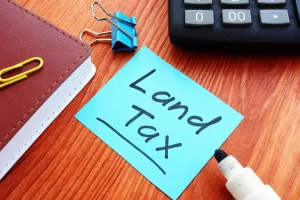Table of Contents
What Are Conveyancing Fees?
Conveyancing fees are the legal fee you pay a conveyancer to ensure the property you’re buying or selling is transferred correctly and lawfully. Additionally, conveyancers will itemise costs for disbursements. These are the necessary out-of-pocket expenses such as property certificates and title search fees. Disbursements are separate from the conveyancer’s fee and are typically itemised for transparency.
What’s The Typical Cost For Conveyancing Fees?
In Melbourne and regional Victoria, starting prices for conveyancing fees are typically between $900 and $1,500 plus GST. The variation in fees largely depends on the type of property, such as residential units, commercial property, or non-titled land. Some conveyancers may also offer a FREE contract review for first time clients looking to make a purchase.
Our Conveyancing Fees
At Orange Legal Group, our basic conveyancing fee starts at $900 plus GST. Additional charges for disbursements, such as Council, Water and Tax Certificates will apply as needed to complete the conveyancing process. Our fees & expenses are generally not required to be paid until settlement. However, if you remove your property from the market or have not sold within 4 months, then you can be asked to cover half the fees & expenses for any work done to date.
FREE Contract Review For First Time Buyers
At Orange Legal Group, we offer a FREE Contract Review for first-time buyers, ensuring you fully understand and are confident with your property contract before signing. Our team will carefully explain the terms and highlight any important aspects, helping you make an informed decision and providing peace of mind in your first property purchase.
Disbursement Fees
Disbursement fees in conveyancing are the costs paid to third parties for various services and checks required during the process of transferring property ownership. These fees are separate from the conveyancer’s own service fee.
Conveyancing Disbursement fees are crucial as they cover the costs of necessary legal documents and checks, ensuring the property transaction complies with legal standards and is free from risks.
Examples Of Disbursement Fees
Disbursement fees can include charges for title searches, council and utility certificates, and other essential searches. These are vital for a clear transfer of property ownership and for making accurate financial adjustments at settlement. Essentially, they help in facilitating a smooth and legally sound property transaction.
Here are examples of Disbursement Fees:
- Title Searches
- Plan Searches
- Zoning & Planning certificates
- Owners Corporation Certificates
- Council, Water and Tax Certificates
- Administration & electronic storage fees



